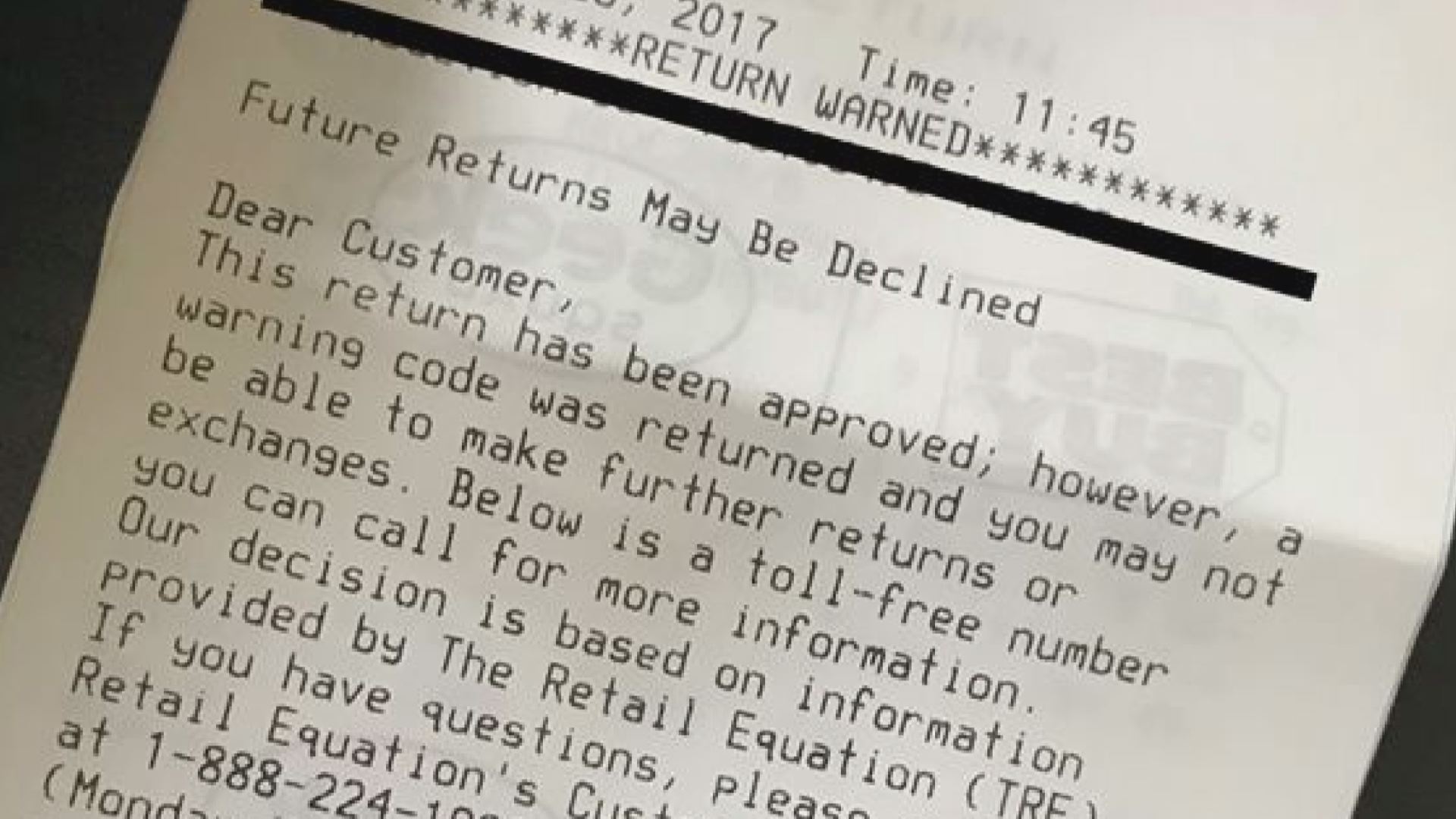CLEVELAND – Michael Spikes admits wholeheartedly that he’s a picky shopper. But he always follows the rules when it comes to returns -- using the original packaging, sticking to the eligible return time period, and having a receipt in-hand. That’s why Spikes was surprised when an Illinois Best Buy store warned him that "future returns may be declined."
Those were the words at the top of his receipt. The receipt continues to read, "our decision is based on information provided by The Retail Equation (TRE)."
"I never thought I would get something like this," said Spikes. "If I buy something, and I don’t think it’s worth my time or my money, I definitely don’t have any qualms about returning it."
We reached out to TRE to find out how a person gets on this blacklist of sorts. A spokesperson for TRE says, "while rules vary from retailer to retailer, Verify is designed to identify fraudulent or abusive behavior. Those behaviors are not typical of 99 percent of consumers."
"The 1 percent of consumers who get denied exhibit return behaviors that mimic fraud or abuse or exhibit habits that are inconsistent with the retailer’s return policy."
In Spikes’ case, TRE was able to track his transactions because Best Buy requires ID to make a return. He also had a receipt and often uses a Best Buy rewards card.
The company keeps report of all customers’ return activity and allows you to request your Return Activity Report by sending an email request.
TRE, owned by Appriss Retail, is active in about 34,000 stores across the U.S. according to its website. The data that is captured when you make a return is not shared amongst retailers.
The return tracking by TRE helps curb the amount of fraud that occurs in the retail industry, a $9 to $17 billion problem according to TRE’s estimates.
Best Buy released a statement about its use of TRE:
""Best Buy captures valid ID information on returns in order to prevent fraudulent returns and deter criminals who attempt to turn stolen goods that can be worth hundreds or thousands of dollars into cash. This is a standard industry practice and we use an outside party to capture the information. We do not have visibility into the data as our vendor flags only the returns that occur on a frequent basis."
Spikes understands why the system is in place. He also says he often buys things to try at home because the descriptions are sometimes incomplete, and the employees at the store don’t know the answers to his questions.
Valid reasons, right? Not if you do it too much. Spikes was able to return his item this time, but this could be the last time that happens.
"I’ll still go. I’ll still spend money there," said Spikes. "I’ll probably go back, but I will say that I’ll be a lot more mindful of items I’ll buy there."
If you're one of those people who likes to give things a try first, you've been warned.


